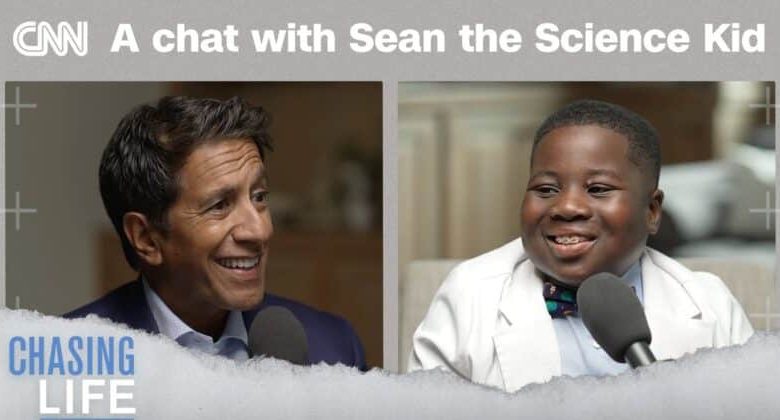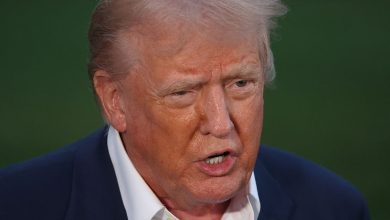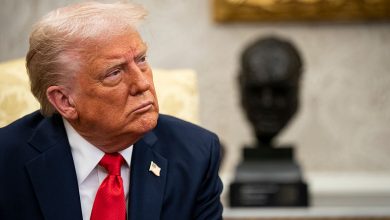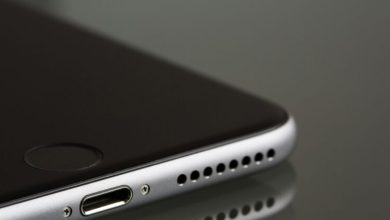Who is Science Prodigy ‘Sean The Science Kid’? Meet the 11-year-old Teaching Science on Social Media

Sean Atitsogbe gained fame for making complex scientific concepts accessible through authentic curiosity and self-taught expertise
Sean Atitsogbe has become a social media phenomenon as “Sean The Science Kid,” teaching complex scientific concepts to millions of followers while pursuing his dream of becoming what he calls a “neurocardio surgeon” – a term he coined at age four to describe combining brain and heart surgery.
The 11-year-old from Lilburn, Georgia, started his YouTube channel at age six and has since expanded to Facebook and Instagram, where he boasts over 780,000 followers. His videos explaining everyday science phenomena with genuine enthusiasm have garnered millions of views across platforms.
Early Signs of Exceptional Ability
Sean’s scientific journey began remarkably early. At nine months old, he read the word “Carter’s” from a store sign during a family shopping trip, shocking his parents who discovered he had been teaching himself phonics and vocabulary.
“My mom was amazed. She was like, ‘Sean, did you just read?’ And I’m like, ‘Silence,’” Sean recalled during a recent interview with Dr. Sanjay Gupta. His parents soon realized their son was self-teaching at an extraordinary pace.
By age three, Sean had progressed through multiple grade levels at High Achievers Academy, completing preschool in a week and advancing to second grade. His mother, Eunice Atitsogbe, noted that neither she nor her husband taught him the advanced concepts he demonstrates.
“The things he knows, none of us taught him — either me or Daddy. Nobody sits him down to teach him anything. He teaches himself,” she explained.
Mensa Membership and Unique Challenges
Sean became an American Mensa member in 2024, joining an organization that requires scoring at or above the 98th percentile on approved intelligence tests. However, his exceptional memory comes with complications.
He describes having hyperthymesia, a rare condition causing highly superior autobiographical memory. “The second I learn something, I kind of memorize it,” he explained, noting that certain triggers can cause vivid recalls of past experiences, including unwanted memories from horror media that disrupt his sleep.
The condition creates what his mother calls “selective” memory – while he can recall vast amounts of information, he still forgets everyday tasks like chores when distracted.
Educational Philosophy and Goals
Sean’s approach to science education emphasizes accessibility and combating misinformation. He identifies three criteria for credible scientific content: reliable sources, clear language without clickbait, and concise explanations without paywalls.
“People are actually investing in [misinformation] and then they read the article,” he warned, describing how false scientific claims spread through social media and unreliable websites.
His ultimate goal extends beyond education to direct medical practice. Sean invented the term “neurocardio surgeon” after learning about the interconnected relationship between brain and heart function. “If one is damaged then what’s going to happen to this loop?” he reasoned, deciding to specialize in treating both organs.
Advanced Theoretical Work
Beyond explaining established science, Sean has developed original theories. His “graviton quantum sponge theory” attempts to unify quantum mechanics and relativity by proposing that the universe contains dimensional holes.
“It describes the origins of the universe and tries to unify quantum mechanics and relativity,” he explained, noting the theory remains a work in progress while warning other physicists not to steal his ideas.
Social Media Success and Challenges
Sean’s breakthrough came with an April 2024 Instagram video explaining the science behind breakfast being the most important meal, which went viral and established his social media presence. His content ranges from neurochemistry explanations to discussions of complex topics like psychoneuroimmunology.
Despite his success, Sean acknowledges making mistakes, including sharing incorrect information about the heart’s pumping capacity that he learned from a book. The experience taught him about the challenges of scientific accuracy, especially when critics expect perfection from a child educator.
“I’m a 10-year-old. Like, let 10-year-olds be 10-year-olds,” he responded to harsh criticism about the error.
Balancing Childhood and Extraordinary Abilities
Sean maintains typical childhood behaviors despite his advanced intellect, admitting to “doom scrolling” and getting distracted from chores. His mother previously consulted psychologists who advised teaching him to play rather than just learn, though these efforts proved unsuccessful.
“I’m still a kid, though. Just because I’m smart, I’m still a kid,” he emphasized, acknowledging he does “everything too much” including playing, learning, and reading.
Concerns About the World
Despite his optimism about personal goals, Sean expresses serious concerns about global conditions. “The world is in a state of turmoil. Like we’re doomed,” he said, citing daily violence and shootings as evidence of societal problems.
He advocates for media-driven messaging to address these issues, believing society must “stop hurting our friends” and cease creating intentionally harmful content.
Future Aspirations
Sean’s confidence in his abilities remains unwavering. When asked about his greatest source of optimism, he replied simply: “Myself.” He follows the philosophy that “if your dreams don’t scare you, they’re not big enough” – wisdom he encountered in a barbershop.
His advice to other children emphasizes self-belief and authenticity: “Never stop believing in yourself and your dreams. Don’t let people criticize you on your own choices. They’re your choices and you are you, not them.”
Sean’s story represents both the potential of exceptional young minds and the challenges of balancing extraordinary abilities with typical childhood development, all while navigating the complexities of social media education and scientific accuracy.




